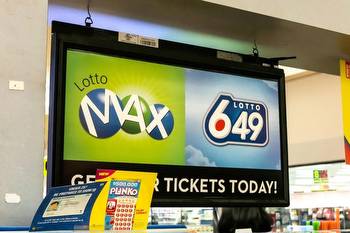More Than Half of Online Gambling in Alberta May Be Illegal

Approximately 55% of Alberta’s iGaming market may be in the hands of online sports betting and casino operators who are not regulated by the province and not authorized by local officials to do business there.
Alberta's online gambling scene is something approaching a 50-50 proposition at the moment.
The good news for Alberta regulators and policymakers is that a government-owned online sports betting and casino gambling site is estimated to have captured nearly half of the iGaming market in the province. The bad news is that the other half may belong to technically illegal operators, who pay no tax and are not subject to local oversight.
Alberta’s Gaming, Liquor and Cannabis Commission (AGLC) reported last week that, with the Edmonton Oilers in the Stanley Cup Finals, residents of the Western Canadian province were placing plenty of hockey wagers at its only legal online sportsbook, Play Alberta.
The AGLC said the government-owned gaming site “has grown significantly,” and, citing estimates from research firm H2 Gambling Capital, controlled more than 45% of the province’s overall iGaming market.
But that means approximately 55% of Alberta’s iGaming market may be in the hands of online sports betting and casino operators who are not regulated by the province and not authorized by local officials to do business there.
“We would suggest that the remaining market that's there is the illegal market,” said Dan Keene, vice president of gaming at the AGLC, in an interview with Covers last week. “We don't refer to it as the grey market. The only legal site in Alberta, of course, is Play Alberta.”
The operators the AGLC considers illegal may include Stake. The large, "grey" market operator generated some buzz recently when rapper Drake revealed he'd placed a $500,000 bet with Stake on the Oilers to win the Stanley Cup.
Nevertheless, Play Alberta has seen its online gambling business grow recently, according to the AGLC. The site now has more than 313,000 registered player accounts and took an estimated $5.36 billion in bets for the year that ended March 31, the agency said last week. The platform also generated $179 million in net sales for the 2023-24 fiscal year, up more than $35 million from 2021-22, the AGLC added.
“That number contributes to the $1.5 billion in total gambling revenue that’s sent to Alberta’s General Revenue Fund and supports programs and services that Albertans rely on every day,” a press release said.
Change is afoot
Illegal operators are providing no tax revenue from their gambling businesses to Alberta's government at the moment. However, even the AGLC’s estimates suggest they are the preferred option for many, if not most, bettors in the province, and that they are strong competitors for online gambling revenue in a jurisdiction that is close in population size to states such as Kentucky and Louisiana.
Those states have competitive markets for legal sports betting, with multiple online operators accepting bets. Alberta does not have the same setup, although that may change over the coming months, giving the AGLC some legal competition in addition to the illegal rivals it already faces.
Alberta's government is currently contemplating a regulated iGaming market that may wind up closer to that of Ontario, where dozens of sites are authorized to offer sports betting and casino games to residents. That framework was the first of its kind for Canada when it launched in April 2022 and remains the only one of its kind. Recently, though, the Alberta government has taken steps that could put a similar structure in play in the Western province, including by passing a bill that may provide for more legal competition in iGaming.
A competitive market in Alberta could help curb illegal wagering.
Of note, the Ontario government said residents were spending an estimated $700 million or so annually with "unregulated, grey market websites" before the province's new iGaming market launched, or about 70% of such spending. The province's attorney general said in April of this year that 86% of players are now using Ontario-licensed sites.
Keene said last week that the AGLC is “very supportive and stands ready to endorse and support” Service Alberta and Red Tape Reduction Minister Dale Nally’s work to expand the legal online gambling market in the province.
However, the AGLC is not standing pat until that work is complete, as it intends to keep bettering its iGaming product to win over customers in its backyard.
“We want to offer a product that's continually enhancing and continually improving,” Keene said. “And we don't take anything for granted.”






































